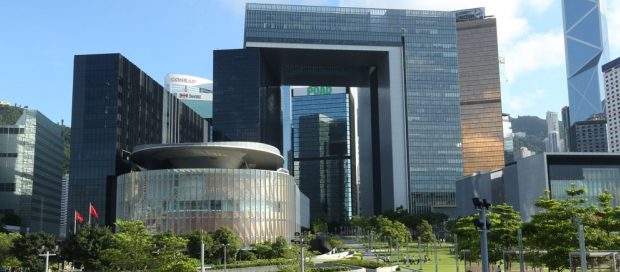Government is the problem, not the solution
(Next Magazine, 2016/10/6, A002, Second Opinion, Bill Stacey)
Political debate in Hong Kong is almost invariably trapped in the “nirvana fallacy”, which according to economist Harold Demsetz, “implicitly presents the relevant choice as between an ideal norm and an existing imperfect institutional arrangement.”
This leads to bad decision-making and bad arguments, especially when the fallacious choice is used by politicians seeking to win over public opinion. It is a fallacy that all sides in political debate fall for. Chief Executive Leung Chun-ying, for instance, has said that “the positive non-intervention policy has become outdated in today’s global and regional competitive environment.” He instead asserts that “the government needs to take a more active role in developing Hong Kong’s economy and improving people’s livelihoods.” This has been the foundation of his now fading term of government.
And there is Nathan Law’s party Demosisto, which might be new, but whose ideas are old, proposing amending Article 107 in the Basic Law to allow greater freedom in our fiscal policy, so that more money may be spent to correct our social ills.
Both Demosisto and Leung posit a nirvana where public-minded officials or elected representatives make carefully calibrated decisions to improve our lives, opportunities, and economic growth. The implies that our current institutions have created high property prices, hardship for those on low incomes, punishing working hours, declining economic growth, and fewer opportunities.
Such promises to fix our ills are seductive. Yet they are also unrealistic. The very process of creating government institutions powerful enough to strive for these goals also creates incentives and consequences that make the nirvana unapproachable.
If government has more power, it raises the stakes for everyone and creates more social conflict. More power for government requires a larger bureaucracy, and bureaucracies are typically unresponsive to individual needs. In the real world there are few, if any, examples of bureaucracies developing new businesses or improving people’s livelihoods. Real bureaucratic institutions are nothing like the nirvana that politicians promise. Cautious and restrained governments have a better track record than ambitious ones.
All promises by government to deliver better livelihoods require resources. That means more taxes and taxes change incentives. Higher taxes would drive away from Hong Kong the most driven, productive, and entrepreneurial talent. People who do not share the political vision of nirvana can leave, but the nirvana-minded seem to believe that there will always be these milch cows to tax.
Politically correct standard working hours and minimum wages increase the cost of employing people, hence less work is available. More importantly, they make work less flexible and adaptable to the needs of working mothers, the young, and the elderly, who want more options than the standard wage contract.
When you change the rules of the game so that government becomes more important, that will induce businesses to switch their focus from winning customers to winning contracts, favors and legislative privileges from government. It might not be their intention, but, if the social democratic ideals of our lawmakers prevail, they will create more opportunities for the businesses they distrust to take coins from the public purse.
When government adhered to positive non-intervention, it was always saying no to pleas for privilege or profit. Though this made it unpopular, rent seekers despaired and gave up asking for support.
One of the primary reasons for rising tension and conflict in Hong Kong is the increased role of the government. As it does more, the stakes about who or what interests control the government rise. Politicians compare the warts of our traditionally restrained institutions to a nirvana populated by angelic administrators or legislators.
A return to positive non-intervention can provide the foundation for individual self-governance. Only when people are responsible for and in control of their own lives does reaching agreement about political institutions become possible.
Bill Stacey

